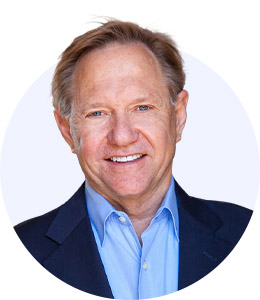Most of us have growing pains, or experiences that can be uncomfortable. Yet, when we look back on some of these pains, we can see they created our greatest learning gains. One of my growing pains was when I was told my job was not about how hard I was working or the hours I was putting in. My job was to deliver the outcomes I was being paid to deliver.
At that time, I had been put in charge of a project, and the goal was to improve results. We had a new CEO. I was called in to meet with him. He asked me to update him on how the project was going. I explained how hard I was working and the many hours I was putting in. I thought it was quite impressive. When I finished, I waited for the compliment. My previous boss would have shown great empathy for my hard work and thanked me. This did not happen. My boss looked at a page he had in front of him and pointed out that the outcome to be improved had not moved up.
I likely heard this more harshly than he said it; however, his response was along the lines of, “Effort is no excuse for lack of results.” My overly sensitive self thought, That is so mean. We are a faith-based, not-for-profit organization. Can he say that? But he was right. I had confused effort with results. Effort is important and a must-have to achieve results. But if it is not achieving results, then it can be wasted effort.
Recently I read in a healthcare post that a measure that hospitals invest lots of time and resources in has not improved since 2016. At times it takes courage to hold up the mirror and say, “Let’s try another way.” In one of my books, I pointed out that the technology put in place to improve results was not moving the needle. It does not mean the attempt was wrong. There are times when certain things just don’t achieve the results we thought they would. In my “less-is-more” work, I find it is healthy to stop doing certain things to see what the impact will be. Some things lose their effectiveness over time.
When I worked at Holy Cross Hospital in Chicago (1993-1996), we were focused on making sure patients felt they received great care. We were trying lots of things. For example, we noticed that some patients did not receive any visitors. The idea was to have staff members volunteer to visit these patients. We had lots of staff volunteer. We trained them on safety, communication, etc. Before we rolled out this great idea throughout the hospital, we piloted it. We visited half the patients who had no visitors, and for the other half, we kept things as they were.
It was exciting. I felt we could likely write this up and get national awards. At the end of the first month, we could not wait to see the patient satisfaction results. To our surprise, there was no difference between those we visited and those we did not. We thought it must just be an anomaly. But the next month, the same thing happened, and also the month after that. We then studied it. It seems those patients who did not have visitors were very used to being alone. The number of people in their room was already more than they were used to.
We had put in a lot of effort and used up lots of resources. While the volunteers had learned from it, we admitted it did not move the “results” needle.
I find this is not an isolated case. Today people are so often pushed into doing more. It is good to step back and study whether these efforts are achieving the desired outcome.
Not all actions will have a direct link to a measurable outcome. Still, it’s always good to ask the question, “What is the outcome?”
My summary is on how to create outcome-based organizations. A few tips:
- Make sure organizational goals are objective and very measurable. The same goes for every leader’s goals. (You likely already have this system in place.)
- Many meetings have a segment where people go around the room and give an update. Instead, move this part to “go around the room and report an outcome you have improved since we last met.” If a person has not improved an outcome, they would just pass.
- Be very focused on skill attainment. Each week, I am in organizations in a “boots-on-the-ground” role. I ask senior leaders to share with me what outcomes they want each direct report to achieve. I always give the benefit of the doubt that they have the will and are putting in the effort.
A senior leader will say to me, “This leader really needs to improve their employee engagement.” Employee engagement is an open-book test. It is measured most often by a survey tool and by employee retention. I then ask, “What skills do you feel this leader needs to achieve that outcome?” It changes the conversation. After asking that recently, I heard, “They need to manage expenses better.” I asked, “What does better look like? What skills do you feel they are lacking?” The key is getting clarity on desired outcomes, tactics to get there, and, just as importantly, the skills the leader is lacking that are keeping them from achieving the outcomes.
I believe people work hard. I believe they want to achieve the outcomes. My main points are always, “Are the skills the leader needs to be successful identified?” and, “What is in place to help the person acquire those skills?”
Ninety-nine percent of the time, I find the issue is not will, but skill. Missing outcomes most often can be traced back to a lack of clarity on the outcome and lack of skill-building in the organization. The great news is these issues are fixable. When we address them, we almost always find that we move the needle on performance. That is a great feeling for everyone.







